“Nature is always available to us, no matter where we live. Even in the most dire inner city situations, if your eyes are open, you will see that the natural world is always at play–in the plants that come up through the concrete, the animals, birds, insects that are present, the cycle of day and night, etc. The earth is always trying to reclaim a state of balance. Everything serves a purpose to that end. Nature itself is a pathway back to living in right relationship with the earth and with each other.”
– Peeka Trenkle, lead teacher of our Green Medicine 4-month training in herbalism.
Herbal Urban Oasis
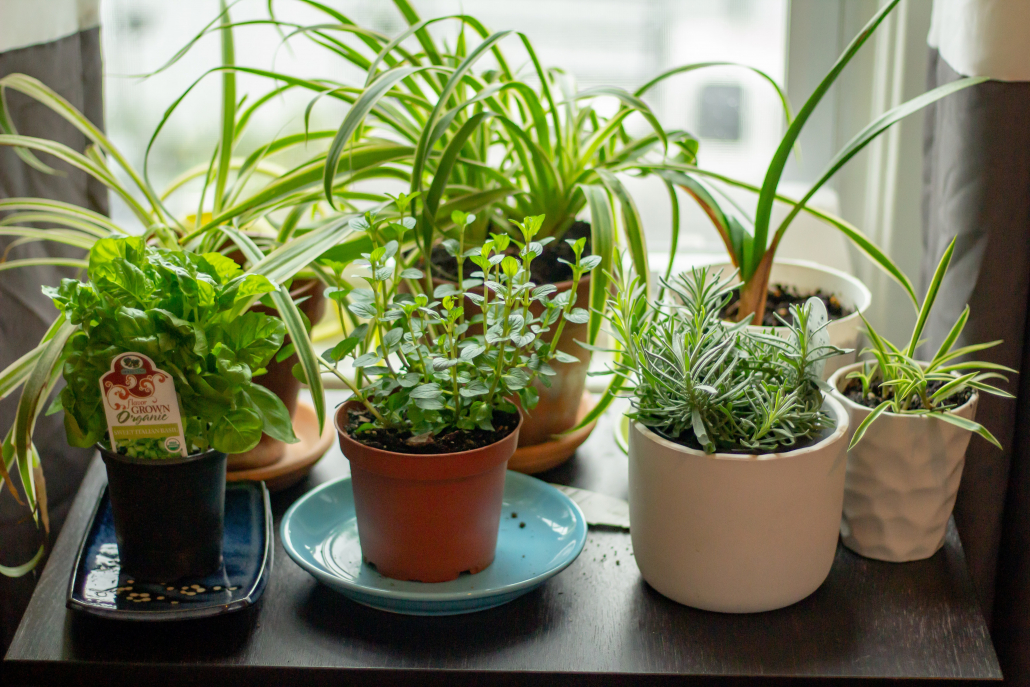
Herb Gardens are great for growing in small spaces.
Nestled on windowsills and fire escapes, they can provide an oasis of natural beauty for urban dwellers starved for green, open space and a longing to deepen their connection to the natural world.
Create your own herbal urban sanctuary with these 4 easy to grow herbs:
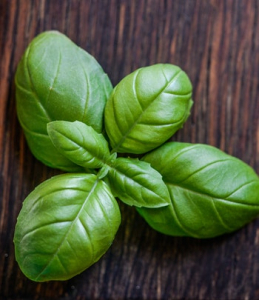
Basil. Pesto Lovers rejoice! Basil grows well on sunny windowsills where it can get 6 hours of sunlight. Forget to water your basil? Don’t worry, you can let the soil dry out a bit between waterings. And be sure to enjoy your basil as it grows–you don’t want it sprouting flowers.
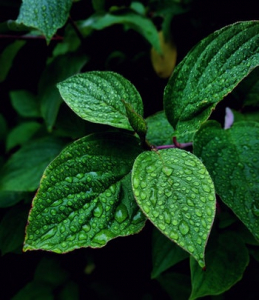
Mint. Mint does well in slightly shadier spots–but it thrives in the morning sun. Be sure it doesn’t dry out, Mint likes its moisture. And like basil, enjoy it as it grows. If you pinch back the flowers before blooming, you can extend its harvest.
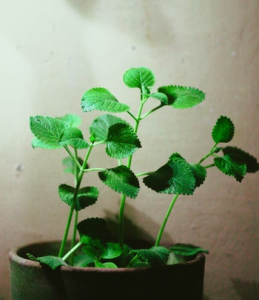
Oregano. Sun loving oregano thrives in the heat of the sun and would do well on your fire escape or balcony. This low-maintenance herb only needs to be watered when the soil is dry.
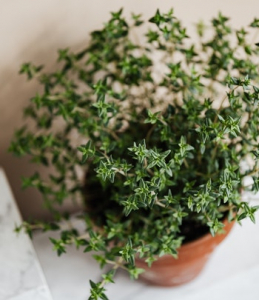
Thyme. Thyme might be the easiest herb to grow because it doesn’t require a lot of attention. Stick it in the sun, let the soil dry out between waterings and enjoy!
Tips for Growing Your Urban Herb Garden:
- Try to find the sunniest spot for your plants. Generally, windows facing south or southwest are your best bet.
- Give your herbs some space. Avoid overcrowding by putting each herb in its own container. And be sure to use pots with drainage holes.
- Invest in some good quality potting soil.
- If your herbs start turning yellow, chances are you’re overwatering them. A good rule of thumb is to water when the soil feels dry an inch beneath the surface.
- Be on the lookout for bugs! If you see an infestation, move your plant away from the others or consider getting rid of it.
Looking for inspiration for your urban garden? Check out this list from the New York Park Restoration Project of 52 parks and community gardens throughout all five NYC boroughs.
Interested in learning traditional, practical and environmentally-sound ways of using herbs to keep well and treat common illnesses? Sign up for updates for our upcoming Green Medicine: A 4-Month Training in Herbalism.
Click HERE to read Part I in our Urban Sanctuary Series.
More from the blog
A Special Thanks To Our Teachers
June 1, 2022/by Laurie JordanA Letter From Our CEO, Ross Guttler
May 25, 2022/by Laurie JordanShining the Spotlight on our Advanced Trainings
January 25, 2022/by Laurie JordanOpening Doors Episode 6: A Symphony of Breathwork Techniques with Roger Jahnke
January 25, 2022/by Laurie JordanRobert Bly (1926 – 2021): An Appreciation
December 10, 2021/by Laurie JordanMeet the Teacher: Faith Adiele
December 6, 2021/by Laurie JordanTracking Wonder – Book Excerpt
November 4, 2021/by Lesley RodriguezMeet the Teacher: Sister Kate
November 3, 2021/by Lesley RodriguezCelebrate Native American Heritage Month
October 29, 2021/by Lesley RodriguezReiki – Frequently Asked Questions
October 28, 2021/by Lesley RodriguezMeet the Teacher: Peeka Trenkle
October 9, 2021/by Lesley RodriguezMeet the Teacher: Felicia Cocotzin Ruiz
October 8, 2021/by Lesley RodriguezGET ON THE LIST
Subscribe to our newsletter to keep up with the latest news and program updates from The Open Center.


